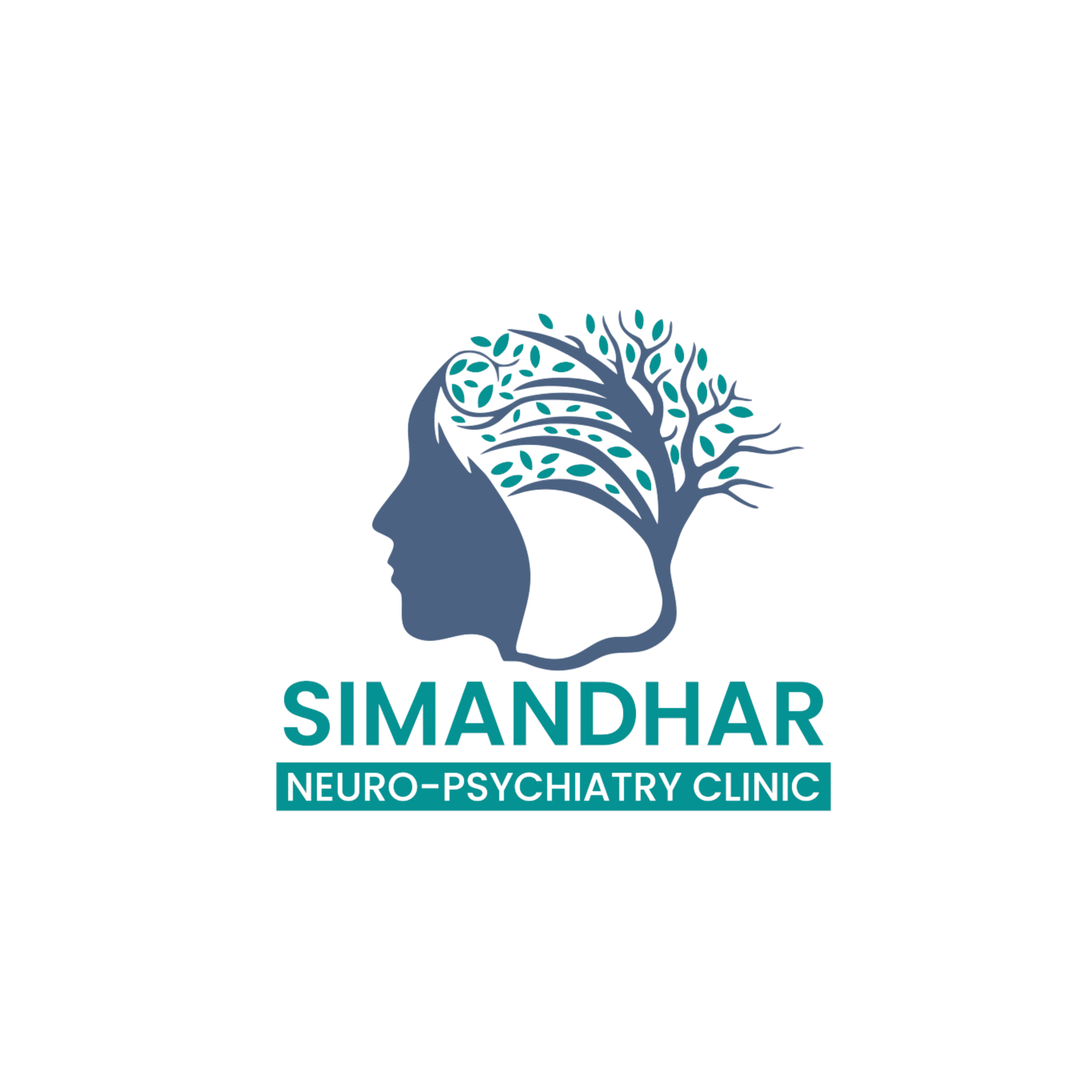






Welcome to
SIMANDHAR NEURO-PSYCHIATRY CLINIC
At Simandhar Neuropsychiatric Clinic, we provide compassionate and expert care for individuals facing a wide range of mental health challenges. Led by Dr. Shanaya Shah, a renowned psychiatrist with years of experience, our clinic is dedicated to enhancing the well-being of our patients.

Assesment
Thorough evaluations to understand your unique mental health needs

Treatment
Tailored treatment strategies for your mental well-being

All age group
Supporting mental health for all ages

Confidentiality
Your privacy and confidentiality are our priority














-
DEPRESSION
-
PHOBIA
-
OCD
-
AUTISM SPECTRUM DISORDERS
-
EATING DISORDERS
-
ANXIETY AND PANIC DISORDERS
-
SLEEP RELATED DISORDERS
Depression is among the common mental health disorders and is mostly treatable. 1
in 5 women and 1 in 10 men suffer from depression at some point in their life. 10-
15% patients of depression commit suicide.
In 2015, approximately 322 million people worldwide were affected by depression. Of
these, 57 million people or 18 per cent were from India.
A phobia can be termed as excessive or irrational fear reaction. It is an
overwhelming and debilitating fear of a place, situation, object, feeling or animal.
We can find people around us who are afraid of clowns, heights, enclosed spaces,
needles, water or fire.
It is characterized by an excessive or irrational fear of situation or an object, phobia
affects millions of people worldwide.
People with obsessive-compulsive disorder (OCD) have obsessions—thoughts,
images, or urges that occur over and over even though people do not want them to.
These obsessions intrude even when people are thinking about and doing other
things. Also, obsessions usually cause great distress or anxiety. The obsessions
usually involve thoughts of harm, risk, or danger.
Autism spectrum disorder (ASD), or autism, is a broad term used to describe a group
of neurodevelopmental conditions.
Autism spectrum disorders are conditions in which people have difficulty developing
normal social relationships, use language abnormally or not at all, and show
restricted or repetitive behaviors.
Affected people have difficulty communicating with and relating to others.
People with an autism spectrum disorder also have restricted patterns of behavior,
interests, and/or activities and often follow rigid routines.
Eating disorders are behavioural conditions characterized by severe and persistent
disturbance in eating behaviours and associated distressing thoughts and emotions.
Eating disorders do not discriminate and can affect people of all sizes, races, sexes,
sexual orientations, and ages.
Eating disorders are more common among women, especially younger women,
than among men.
Studies have shown that eating disorders are associated with psychological
disorders, as well as mood disorders and low self-esteem.
Commonly associated conditions include anxiety, depression, obsessive-compulsive
disorder, post-traumatic stress disorder, bipolar disorder, attention deficit
hyperactivity disorder (ADHD), and autism.
An anxiety disorder is a mental health condition that is characterized by high levels
of worry and anxiety.
It exists can be caused by family history, trauma, health issues or substance abuse.
It may even occur as a result of another mental illness like depression or a
personality disorder.
Sleep-related disorders are a group of illnesses with marked effects on patients’
quality of life and functional ability. Disturbed sleep reduces the quality of life.
Sleep disorders are conditions that impair your sleep or prevent you from getting
restful sleep and, as a result, can cause daytime sleepiness and other symptoms.
Learn more
About Mental Health

Mindful Awareness
Practice mindfulness to stay present in the moment. Mindful breathing and meditation can help reduce stress and enhance overall mental clarity.
Prioritize Self-Care
Take time for self-care activities that bring joy and relaxation. Whether it's reading a book, going for a walk, or practicing mindfulness, prioritize activities that nourish your mental well-being.


Educate and Advocate
Stay informed about mental health and help break the stigma. Advocate for mental health awareness and encourage open conversations within your community.
Finding what works for you
A joyful investment in your body and mind
check this out
Our Latest Blogs
Breaking the Silence: Overcoming Stigma and Promoting Mental Health Awareness
In a world that thrives on connectivity and communication, it’s astonishing how silent the conversation surrounding mental health can be. The shadows of s
Navigating Instagram vs. Reality: Safeguarding Young Adults in a Complex Online Landscape
In the age of social media dominance, platforms like Instagram offer young adults a window into a curated world where every moment appears picture-perfect. Howe
Nurturing Strong Relationships for Better Mental HealthOne-on-One program
Our relationships with people around us have a big impact on how we feel inside. These connections with family, friends, partners, and others can make us feel h
Get In Touch With Your Mental
Health Expert
Error: No feed found.
Please go to the Instagram Feed settings page to create a feed.



